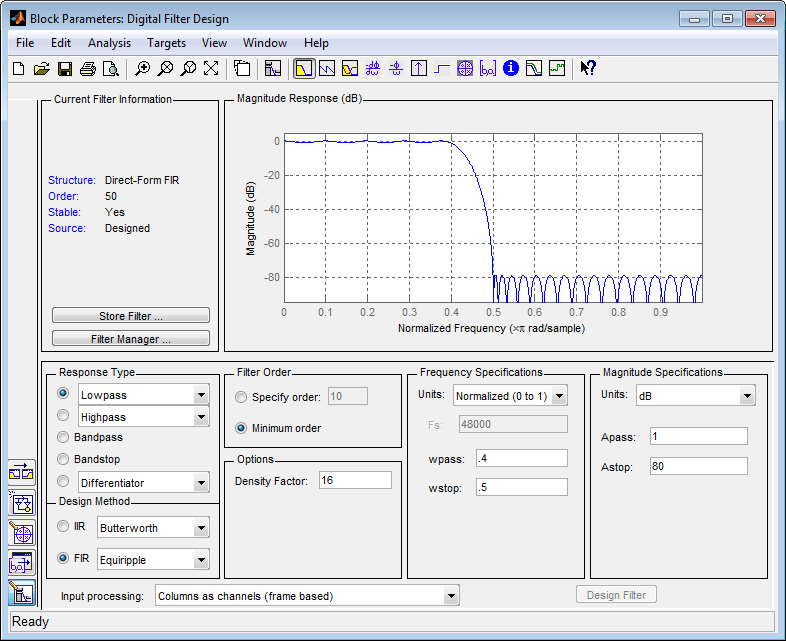Digital Filter Design
Design and implement digital FIR and IIR filters
Libraries:
DSP System Toolbox /
Filtering /
Filter Designs
Description
Use this block to design, analyze, and efficiently implement floating-point filters.
The Digital Filter Design block implements a digital Finite Impulse Response (FIR) or
Infinite Impulse Response (IIR) filter that you design by using the Filter
Designer (filterDesigner) app. This block provides
the same filter implementation as the Discrete FIR Filter or Biquad Filter
blocks.
You must specify whether the block performs frame-based or sample-based processing on the input
by setting the Input processing parameter. The block applies the
specified filter to each channel of a discrete-time input signal and outputs the result.
The outputs of the block numerically match the outputs of the Discrete FIR Filter or
Biquad Filter block and the MATLAB®
filter function. For more information,
see Getting Started with Filter Designer.
The Discrete FIR Filter (Simulink) and Biquad Filter blocks also implement digital filters, but serve a slightly different purpose. Use these blocks to efficiently implement floating-point or fixed-point filters that you have already designed. These blocks provide the same exact filter implementation as the Digital Filter Design block.
Examples
Ports
Input
Output
Parameters
Block Characteristics
Data Types |
|
Direct Feedthrough |
|
Multidimensional Signals |
|
Variable-Size Signals |
|
Zero-Crossing Detection |
|
More About
Extended Capabilities
Version History
Introduced before R2006aSee Also
Functions
Tools
Blocks
- Discrete FIR Filter (Simulink) | Biquad Filter | Analog Filter Design | Window Function

